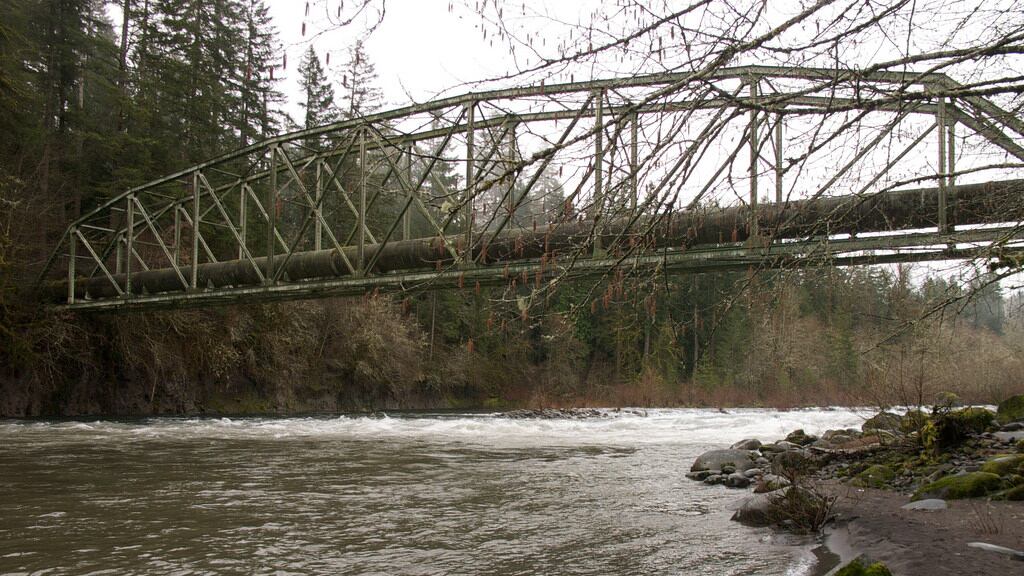We've all watched nervously as wildfire threatens the Bull Run watershed. That said, I suspect many of us aren't actually sure what a "watershed" is. Is it a spring? A lake? A river? And if it's water, why do we have to worry about it catching fire? —Bull Runner
Don't feel too bad, Runner—I'm pretty sure that there's a solid two-figure percentage of Portlanders who believe the watershed is an actual shed, possibly guarded by an old guy in a rocking chair with a shotgun across his lap.
Geography 101: Water flows downhill, so any patch of ground will always drain in the same direction, into the same rivulet, which empties into the same creek, which feeds the same river.
The full area that drains ("sheds" water, get it?) into a particular waterway is called that waterway's watershed. The watershed of a major river may also be called a basin, and comprises the watersheds of all that river's tributaries.
The term "watershed moment," incidentally, comes from the high geographical ridge that separates one watershed from the next. (The Continental Divide is one such ridge; crossing it was no doubt a watershed moment for pioneers.)
The watershed of the Bull Run River is protected from humans and the many gross things they do. But massive wildfires are a different story.
As you note, the river and its tributaries can't catch fire, but the heavily forested land of the watershed can. If a subsequent rain washed charred trees or other organic matter into the river, public health regulations would require the Portland Water Bureau to switch from Bull Run water to the backup groundwater system, at least until the grit settled.
More grimly, if large sections of the watershed completely burned to the ground, the plant roots that keep erosion at bay could break down, leading to muddy, undrinkable water ("turbidity" is the term of art) every time it rained.
At press time, fires had reached some of the protected land surrounding the watershed, but not the actual drainage basin itself. We'll see.

